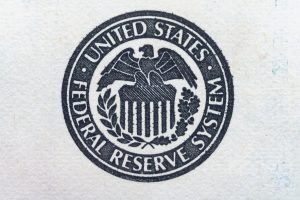What Happens If the Government Takes Over Monetary Policy? A Warning for Minneapolis Duplex Investors
 If you’re a real estate investor in Minneapolis or St Paul (or anywhere in the U.S.), you already know the Federal Reserve has a big impact on your bottom line. Mortgage rates, inflation, and the overall health of the housing market all flow from its decisions.
If you’re a real estate investor in Minneapolis or St Paul (or anywhere in the U.S.), you already know the Federal Reserve has a big impact on your bottom line. Mortgage rates, inflation, and the overall health of the housing market all flow from its decisions.
But here’s the kicker: what if the government, not an independent Fed, was calling the shots on monetary policy?
Spoiler alert: it’s not good for duplex investors like us.
The Role of the Federal Reserve vs. Government Control
The Federal Reserve is designed to be independent from politics. Its job is to keep the economy balanced by adjusting interest rates and controlling money supply based on economic data, not election cycles.
That’s why news that the president wants the Federal Reserve or its employees to behave a certain way should send chills down every real estate investors spine. Here’s why.
If the government took control of monetary policy directly, decisions would shift from being data-driven to politically motivated. And for investors, that creates serious risks.
- Short-Term Gains, Long-Term Pain
Politicians love quick wins, especially before elections. That means they want to keep interest rates low so voters feel good about the economy and as a result, vote for them.
- Short-term: Cheap mortgages, higher property sales in both volume and values, and maybe even a bump in rents.
- Long-term: Inflation spikes, housing bubbles are created, and eventually the market crashes.
That’s a dangerous game for anyone building a duplex portfolio.
- Mortgage Rate Rollercoaster
Independent central banks aim for stability. The goal of a politician on the other hand is to get re-elected. If they were in charge of monetary policy, mortgage rates could swing wildly depending on who holds office. That makes duplex financing unpredictable and risky, and refinancing strategies almost impossible to plan.
- Inflation Spirals
When governments are in charge of monetary policy, they tend to do one thing: print more money.
- The result: The dollar weakens.
- Everyday costs (including property expenses) go up.
- Tenants’ paychecks don’t stretch as far, making it harder for them to pay rent.
That means your cash flow gets squeezed, even as your operating costs rise. It may also mean more hands-on tenant management, including chasing late rent payments and even evictions.
- Loss of Investor Confidence
Part of what keeps U.S. real estate attractive, even to global investors, is the credibility of an independent Federal Reserve. If that independence were stripped away, investor confidence would nosedive. Borrowing costs would rise across the board, hitting real estate investors in Minnesota and nationwide.
- Real Estate Market Volatility
Without an independent referee, monetary policy would swing back and forth every few years with the political winds. That would create a volatile housing market, making it harder to predict property values, plan long-term cash flow, or grow a steady duplex portfolio.
Bottom Line for Real Estate Investors
When monetary policy becomes a political tool, it stops being about what the economy needs and starts being about what politicians want. And that means short-term sugar highs but long-term instability.
For duplex investors, that translates to:
- Riskier mortgage financing
- Squeezed cash flow
- More volatile property values
And that’s why an independent Federal Reserve isn’t just an econ headline, it’s the backbone of a stable, predictable investment climate.

